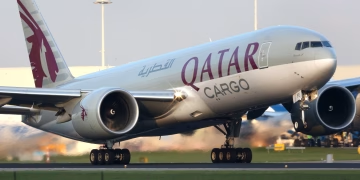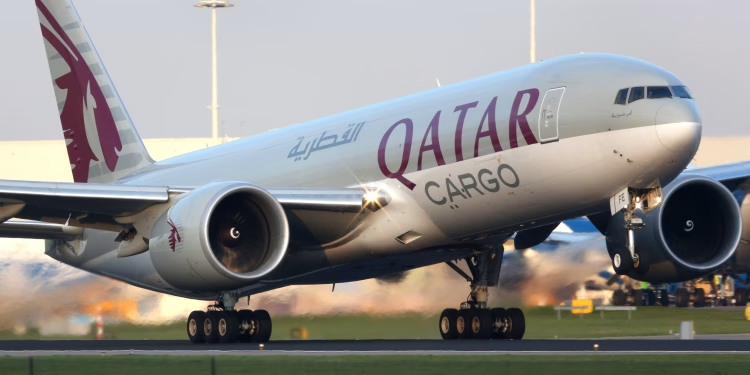By Maria Kalamatas | August 12, 2025
Doha — On a humid August morning, the tarmac at Hamad International Airport was unusually busy. Mechanics in high-visibility vests moved quickly between two gleaming Boeing 777 freighters, fresh from Boeing’s Everett plant in Washington State. By the end of the week, both aircraft will be in service, marking one of the most significant capacity boosts for Qatar Airways Cargo in recent years.
The timing is not accidental. Global freight volumes, particularly in e-commerce and temperature-controlled goods, have been climbing steadily. In markets such as Hong Kong–Frankfurt and Shanghai–Chicago, space is already tight, and rates have been edging upward.
“Our customers are asking for faster, more reliable options on long-haul routes. Expanding now is the only way to maintain that level of commitment,” said Guillaume Halleux, Chief Officer Cargo, as crews completed final inspections inside the cavernous hold of one of the new planes.
Unlike previous fleet expansions, these aircraft are not simply replacing older units. They are an outright addition, pushing the carrier’s total freighter count to 32. Capable of carrying over 100 tonnes each, the new 777Fs will slot into routes with persistent capacity bottlenecks, including key Asia–Europe corridors.
Boeing has equipped the jets with upgraded avionics and weight-saving composite materials, which Qatar Airways says will help offset fuel costs and reduce emissions. For the airline, it’s not just about more space — it’s about holding ground in a market where competitors are also scaling up aggressively.
Analysts note that the move positions Qatar Airways Cargo to absorb seasonal surges later this year, especially during the pre-holiday peak when everything from electronics to fresh produce crowds the skies. For the airline’s freight customers, the addition can’t come soon enough.























